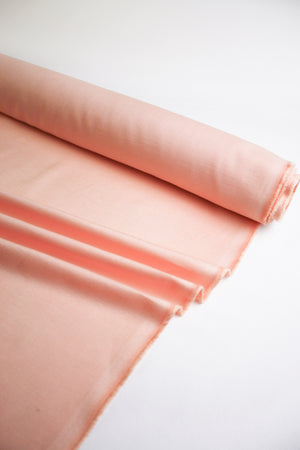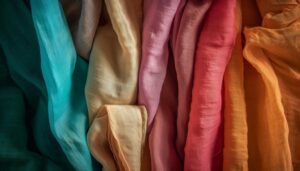How to Choose Between Linen and Voile for Lining?
Choosing the right fabric for lining is crucial in fashion and sewing, as it affects the garment’s overall look and feel. Linen and voile are popular choices, each with unique properties. This article will guide you through their compatibility, helping you make an informed decision.
Compatibility Analysis
Can linen and voile be used together? Yes, they can, but with considerations. Linen is heavier and more textured, while voile is lightweight and smooth. Their differing weights and textures can complement each other if used thoughtfully. Key factors include texture, weight, stretch, care requirements, and durability. Linen’s durability pairs well with voile’s softness, offering a blend of strength and delicacy.
Fabric Properties Comparison Table
| Property | Linen | Voile |
|---|---|---|
| Fiber Content | Natural (flax) | Natural or synthetic |
| Weight and Thickness | Medium to heavy | Light |
| Breathability | Highly breathable | Highly breathable |
| Stretch and Elasticity | Low stretch | Low stretch |
| Wrinkle Resistance | Wrinkles easily | Wrinkles less |
| Care Instructions | Cool wash, iron damp | Gentle wash, low iron |
| Durability | High | Moderate |
Benefits of Mixing These Fabrics
Combining linen and voile can enhance texture and visual interest, offering a unique aesthetic. The mix improves comfort, as linen provides structure while voile offers softness. This pairing allows for better drape and movement, essential for flowing garments. Economically, using voile as a lining can reduce costs compared to using linen entirely. Additionally, their seasonal versatility makes them suitable for both warm and cool climates, expanding design possibilities in fashion and home decor.
Potential Challenges
When mixing linen and voile, be aware of different shrinkage rates. Pre-wash both fabrics to minimize this issue. Conflicting care requirements can be managed by choosing a gentle washing method suitable for both. Texture clash or pilling might occur if not handled properly; using a stabilizer can help. Seam puckering is another potential issue; using the correct needle and thread can prevent this. Color bleeding or fading should be tested beforehand. Practical solutions include using color catchers and testing fabric samples.
Sewing & Styling Tips
For sewing linen and voile, use a fine needle (size 70/10) and polyester thread for durability. Consider lightweight interfacing to maintain structure without adding bulk. French seams or serged edges work well for finishing. Choose patterns that highlight the fabrics’ flow, like maxi dresses or loose blouses. Styling ideas include layering garments for fashion or using as curtains in home decor to enhance light diffusion.
Care & Maintenance Guide
Wash linen and voile with cold water to prevent shrinkage. Line drying is ideal to maintain their shape. Iron linen while damp to ease out wrinkles, and use a low setting for voile. For stain removal, treat linen with mild soap and voile with gentle stain removers. Long-term care involves storing in a cool, dry place to prevent damage.
FAQ Section
-
Can you wash linen and voile together?
Yes, but use a gentle cycle and cold water to maintain their integrity. -
Will linen shrink more than voile?
Linen tends to shrink more, so pre-washing is recommended. -
What needle size should I use for sewing these fabrics together?
A size 70/10 needle is ideal for both linen and voile. -
Can you mix linen and voile in one garment?
Absolutely, they can complement each other when used thoughtfully. -
How do you prevent seam puckering when combining these fabrics?
Use the correct needle and thread tension to avoid puckering. -
Is it okay to mix linen and voile for upholstery?
Yes, but ensure the design suits their combined properties. -
What’s the best way to finish seams with these fabrics?
French seams or serging are recommended for a clean finish.
By understanding the properties and compatibility of linen and voile, you can create garments and home decor items that are both beautiful and functional. This guide provides the insights needed to make informed decisions in fabric pairing, enhancing your sewing projects with these versatile materials.


Leave a Reply